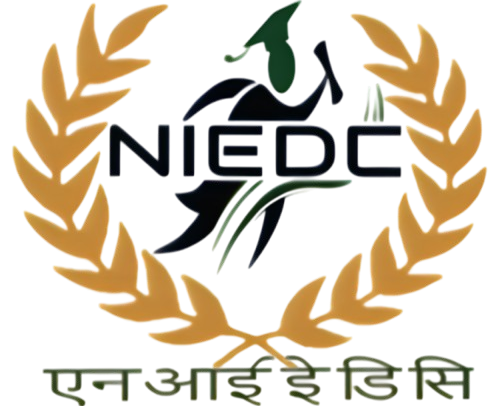
The career landscape in 2025 is no longer divided neatly into “tech” and “non-tech” silos. Instead, the most in-demand professionals are those who blend technical expertise with domain-specific knowledge — the “hybrid” talent.
Whether you’re a marketer who can analyze data with Python, a teacher using AI-driven tools in the classroom, or a healthcare worker deploying digital diagnostics, hybrid skills are the new currency of career success.
In this article, we’ll explore the difference between tech and non-tech careers, why the divide is fading, and why hybrid skill sets are giving professionals a powerful edge in today’s job market.
🧠 What Are Hybrid Skills?
Hybrid skills refer to the combination of technical competencies (coding, data analysis, cloud computing, etc.) and traditional soft or domain-specific skills (communication, critical thinking, management, etc.).
Examples:
- A product manager who understands both customer psychology and how APIs work
- A financial analyst who automates reports using Python or Excel macros
- A healthcare professional who uses AI-assisted diagnostics and telehealth platforms
- A journalist who uses SEO tools, analytics, and even GPT-based assistants for reporting
Hybrid professionals don’t need to be master coders — they just need enough tech fluency to understand and leverage modern tools.
🧑💻 Tech Careers (Traditional Examples)
Tech careers focus heavily on engineering, development, and infrastructure. While highly valuable, many of these roles now demand non-technical abilities to thrive.
Examples:
- Software Developer
- Cybersecurity Analyst
- Data Scientist
- DevOps Engineer
- Cloud Architect
Current Trend:
Even within these roles, soft skills like collaboration, problem-solving, and product thinking are essential — especially in remote-first teams.
🧑🏫 Non-Tech Careers (Traditional Examples)
Non-tech roles include jobs in marketing, education, HR, design, finance, and healthcare. Historically, they required less digital literacy — but not anymore.
Examples:
- Teacher or Academic Advisor
- Marketing Manager
- HR Executive
- Customer Support Lead
- Financial Advisor
Current Trend:
Today, professionals in these fields are expected to use tech tools, interpret data, and adapt to AI-enhanced workflows.
⚡️ Why Hybrid Roles Are Exploding in 2025
✅ 1. Digital Transformation Is Industry-Wide
Tech isn’t just for tech companies anymore. From agriculture to fashion, every industry is undergoing digital transformation — and they need people who understand both technology and their specific business context.
✅ 2. AI and Automation Are Shifting Job Expectations
Repetitive, manual tasks are increasingly automated. What’s left are strategic, analytical, and creative roles — which benefit greatly from a combination of human insight and technical tooling.
✅ 3. Employers Want Versatility
In a leaner post-pandemic economy, companies value versatile employees who can wear multiple hats — someone who can write compelling content and use analytics dashboards, or a recruiter who can screen candidates and manage an ATS system.
✅ 4. Cross-Functional Teams Are the New Norm
Modern companies work in agile, cross-disciplinary teams. Developers, designers, marketers, and analysts must all collaborate — and shared understanding of tools and processes speeds up execution.
🚀 Top Hybrid Careers in 2025
Here are a few standout roles where hybrid skills are not just helpful — they’re essential:
| Role | Tech Skills | Non-Tech Skills |
|---|---|---|
| Product Manager | APIs, SQL, Wireframing Tools | Customer empathy, roadmap planning |
| Growth Marketer | SEO, Google Analytics, Automation | Copywriting, branding, storytelling |
| Business Analyst | Data modeling, Excel, BI Tools | Business logic, stakeholder communication |
| Instructional Designer | LMS tools, HTML/CSS | Teaching, curriculum design |
| HR Tech Specialist | HRIS, ATS, Reporting Dashboards | Recruitment strategy, people skills |
| Digital Health Coach | Telemedicine platforms, wearables | Counseling, medical knowledge |
| LegalTech Consultant | eDiscovery tools, blockchain contracts | Legal analysis, compliance expertise |
📈 How to Build Hybrid Skills
💡 1. Start with What You Know
If you’re a finance pro, learn Python for financial modeling. If you’re a teacher, explore EdTech platforms or create interactive online lessons.
💡 2. Learn a Tool, Not a Language
You don’t need to become a full-stack developer. Learn tools that enhance your role — like Zapier for workflow automation, Tableau for data analysis, or Canva for content design.
💡 3. Take Online Micro-Courses
Platforms like Coursera, Udemy, and LinkedIn Learning offer affordable, short-term courses that teach targeted hybrid skills.
💡 4. Build Side Projects
Practice is key. Build a dashboard, automate a spreadsheet, or try designing a landing page — even if it’s just for yourself.
🔮 Conclusion: The Future Belongs to the Hybrid Professional
In the evolving job market of 2025 and beyond, it’s not about choosing tech vs. non-tech — it’s about blending both to create value-driven careers. Hybrid professionals are adaptable, future-ready, and often have a unique competitive edge.
The best investment you can make today?
Learn a technical skill that enhances your current expertise, and you’ll become indispensable — recession or not.




